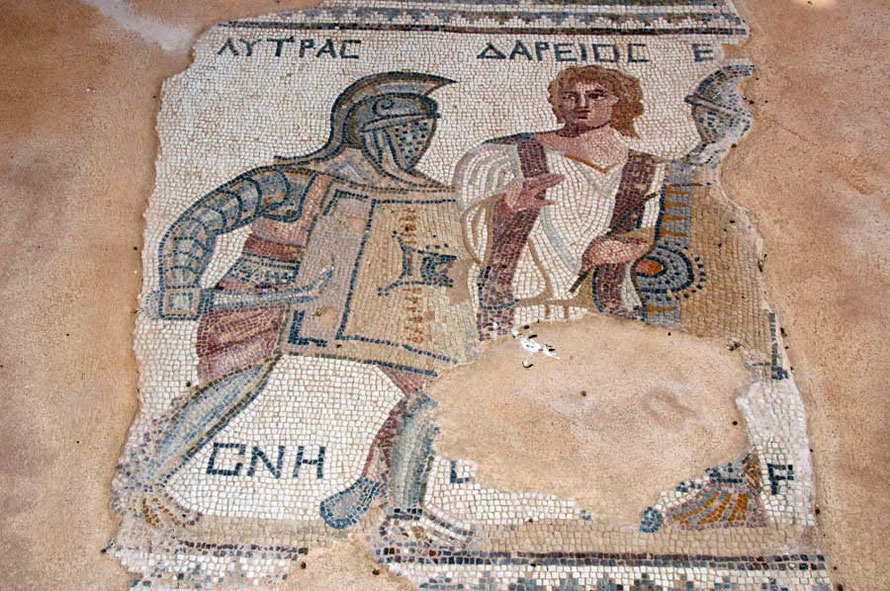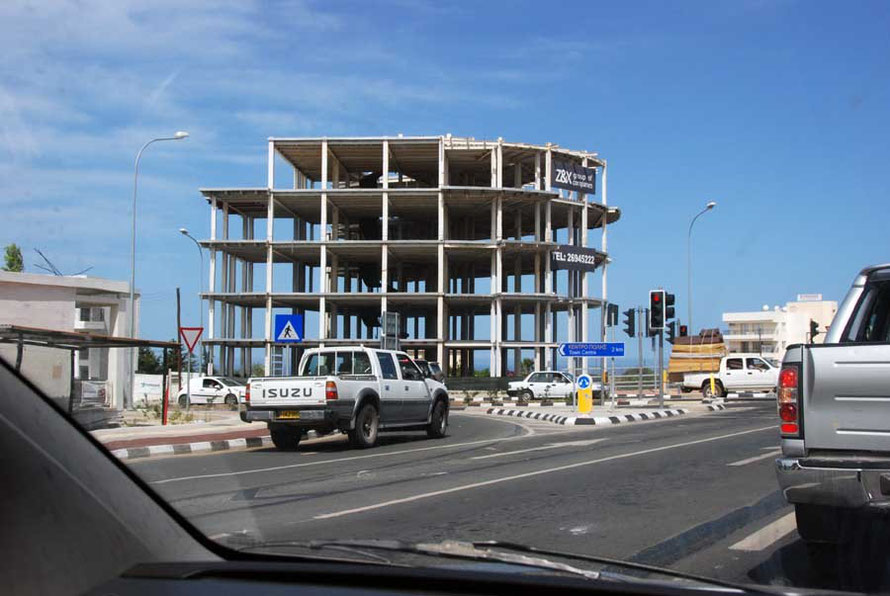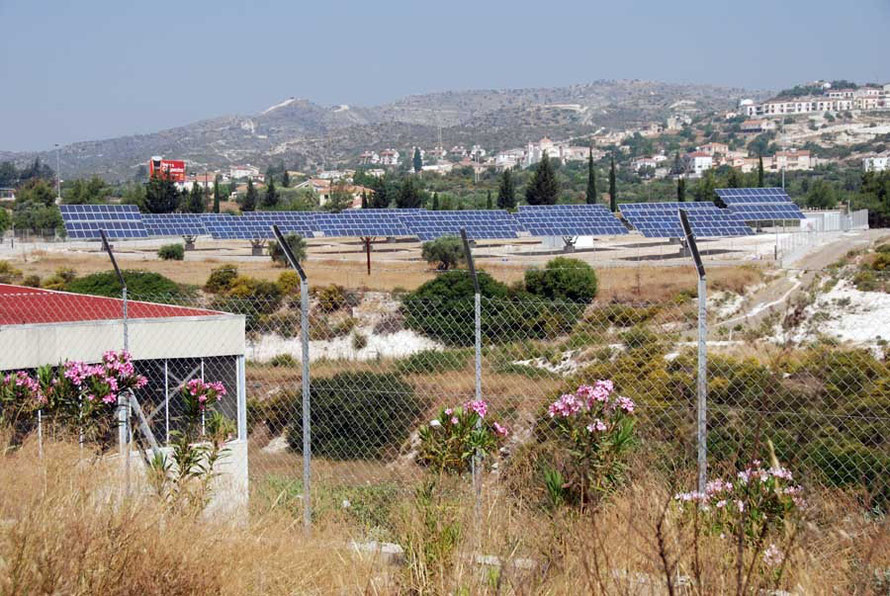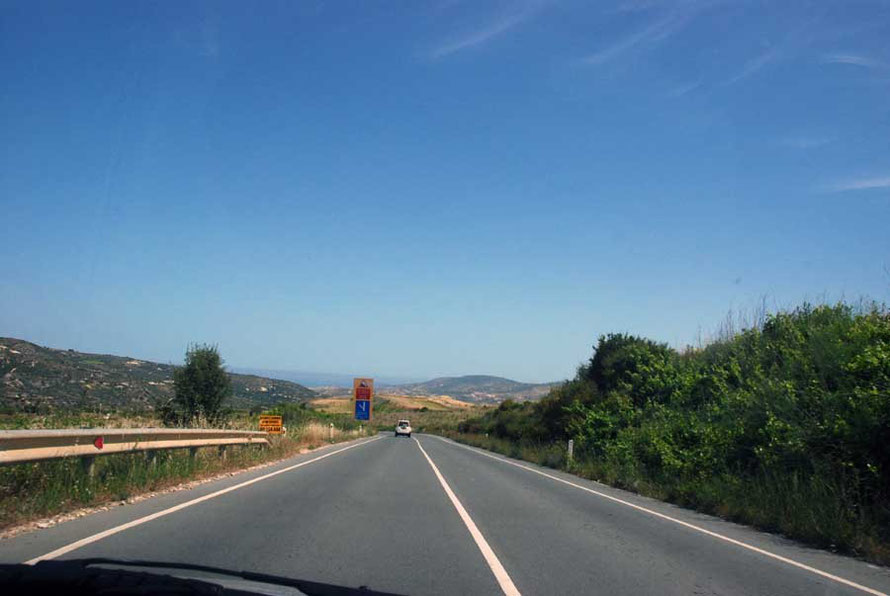VI. Economic Crisis
An EU Bailout?
On 25 June the Cyprus government announced it was seeking financial assistance - ie a bailout - from the EU. Behind the scenes Cyprus had been seeking bilateral loans from either Russia, China or the UK (see FT 26 June and Cyprus Mail 27 June 2012.) The assistance is in the main to recapitalise Cyprus' ailing banking sector.
On July 12th the Cyprus Mail published an excoriating opinion piece on the government's performance. It said,
The speed and efficiency with which the troika’s [the International Monetary Fund (IMF), the European Central Bank (ECB) and the European Commission (EC)] technocrats work must have come as a big culture shock to Cyprus’ decision-averse officials who are accustomed to having countless inconclusive meetings before coming up with ineffective decisions aimed at keeping everyone happy, in the name of social consensus.
It sent on to spell out the desperation of Cyprus' situation,
The truth is we are in a desperate position. The state has run out of money and it is now raiding the coffers of semi-governmental organisations to repay loans of a few hundreds of millions in the next few weeks. [This includes a less-than-expected loan of €100m from state telecommunications company CyTA.] There is even talk that there would be no money to pay public employees by the end of August.
And concluded with,
We will now pay for the decades of reckless populism, financial profligacy, greed and corruption, not to mention the illusion that we could live beyond our means forever. Unfortunately pay-back time has now arrived and the bill will be staggeringly high.
Clearly the Mail is not sympathetic to the current government and this piece attracted a lot of positive comment from Brits with Cyprus connections and largely ex-patriot Cypriots.
The President, Demetris Christofias, has been seeking a method of meeting these requirments - which may amount to between €4bn (23% of GDP), in such a way as to minimise supervision of Cyprus' budget deficit 8 months before national elections. "Christofias has repeatedly said any economic measures would not further impact 'the workers'" (Cyprus Mail 27 June 2012). Apparently Christofias is receiving international media attention for his supposed 'Middle Eastern haggling' over possible sources of debt finance and was still holding out the hope that China or Russia might come up with loans and obviate the need for an EU bailout (Cyprus Mail 28.6.2012).
In the meantime the country has been rocked by a gangland slaying in Aya Napa where three cypriots and two bulgarians were executed in a professional hit on their black BMW. There is speculation that the killings may be related to an online betting and casino war that has seen five arson attacks against the gaming company OPAP which is partially exempted from a potential legislative ban on online casino games and exchange betting. (see CM 25, 26, 27 June 2012).
The Economy: Growth Halted?
The southern economy was in dire straits after the division of the island with unemployment at 40% between 1974 and 1976. Much of the recovery of the economy has been helped by foreign aid.
In 2009 real estate sales were the biggest foreign currency earner, then tourism, then service sector.
Tourism has been a crucial driver of economic growth. Package tourism has come under increasing competition from other countries and in the south it declined by a third between 2005 and 2009 from 2 million visitors a year. By country Britain accounts for 50% of Cyprus tourists followed by Scandinavia, Greece, Russia and Germany. The north has 70-80,000 tourist visitors a year, again led by Brits.
Tourism strategy is now looking more towards residential, real-estate-based tourism. 40,000 UK citizens own property in Paphos alone (Rough Guide 2009 pp. 44-5.
The strong performance of the Cypriot banking sector as an offshore banking area for Greece, Russia and the Middle East coupled with a construction boom to cater to the needs of tax-benefitted ex-pat communities (Russia and Britain in particular) and tourism, have created strong economic growth in Cyprus.
A beneficial tax regime attracts foreign capital and foreign residents. Corporate tax rates in Cyprus are 10% and British residents pay a flat rate income tax of 5% and non Cypriot foreign domiciles pay no inheritance tax.
Strong growth has provided the government with sufficient funds to pay generous public sector salaries and buy-off the island's strong public sector unions. This has been done recently through the Akel communist party-led government and its Russian-educated president, Demetris Christofias (See FT online 04.08.2011). This FT blog quips that 'a Cypriot civil servant can win three pay raises in a year just by sitting in his (sic) seat.'
The central government employed 58,673 people at the end of 2011. Another 22,000 work in the wider public services. (Cyprus Mail, 27 June 2012).
But Cyprus is facing hard times as its government bond status has been downgraded to 'junk' by three ratings agencies; it faces a budget deficit of 5.5%; it has undertaken to support the Cyprus Popular Bank with a massive - for Cyprus - taxpayer underwritten share issue; and the fate of its growth engine - the banking sector - is absolutely bound-up with the fate of the Greek banks and economy.
The development of ‘hideous unbroken strips of low-to-medium-rise blocks around Larnaca, Limassol, Ayia Napa and Pafos’ are a blight on the landscape and have been achieved with ‘few zoning restraints.’ The rapid development of the road network has opened up the south to inland as well as coastal development. (Rough Guide 2009 p.79)
Approval to build marinas at four Cypriot resorts marks a shift in Cyprus’ tourism strategy towards maritime tourism – these are planned for Coral Bay, Ayia Napa, Larnaca and the nearly completed €350m Limassol marina with 1,000 yacht berths (FT 2008).
Aid since EU accession in 1994 has been worth €800m a year to the Republic of Cyprus while an EU fund of €259m was set up for the north in 2006. Turkey is estimated to put about €400m into the north to keep the economy from collapsing (see House of Commons Foreign Affairs Committee Visit to Cyprus 2008-9 p.13).
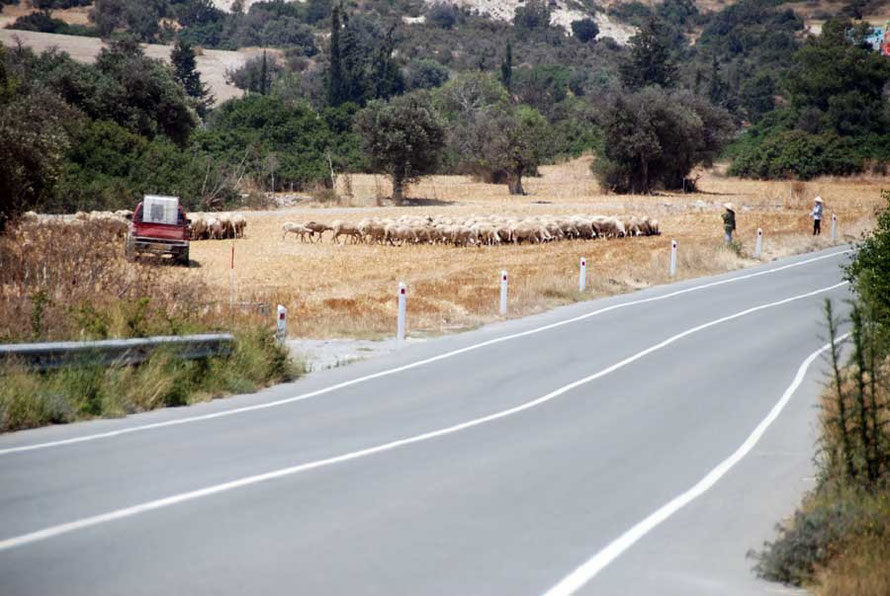
Economic growth has led to labour market shortages in the south. Depending on your year and source between 15,000 and 6,000 Turkish Cypriots cross the Green Line each day to work in the south (see Rough Guide 2009 p.9 and Foreign Affairs Select Committee visit to Turkey and Cyprus 2007.)
These workers are supplemented by Sri Lankans and Bangladeshis, Vietnamese and Phillipina workers often ‘hired on short-term contracts and treated miserably’ according to the Rough Guide 2009 p.76)
There area also estimated to be 1,500 sex workers – so called ‘natashas’ working in the north and south (Rough Guide 2009 p.63).
Deepening ties with Moscow?
In 2011 the Russian government loaned €2.5bn to the Cyprus government on generous terms (4.5% per annum over 4.5 years) which has 'worried some foreign diplomats about deepening ties with Moscow' (Financial Times 05.06.12.) and the exposure of Cypriot banks to the Greek debt crisis.In Jan 2013 Cyprus was hoping to extend the repayment of this loan by sis years (FT 31.1.2013).
Apparently Russians hold a 'large proportion' of the €22bn in Cyprus bank accounts belonging to those outside the eurozone (FT online edition 05.06.12.) Cyprus has close trade links with Russia, due in part to a favourable tax arrangement that encouraged companies doing business with Russia to work through Cyprus.
Cyprus is in effect a conduit for much of Russia's offshore banking: it is estimated that Russian deposits in Cypriot banks and investments in real estate amount to more than €10bn (see Financial Times 14.09.2011.)
Limassol(grad) is home to 30-40,000 Russians - many being 'Pontian' Russians of Greek descent from the Black Sea region. There are allegations that 'Russia is involved in running a huge weapons trade via Cyprus to the countries of the Middle East, particularly to Syria, Lebanon, Iran and Iran – and even to China and India.' Guardian 26 January 2012.
In July 2012 the Cyprus government was hoping to secure a further €5bn Russian loan as an alternative to or part of a mixed EU/Russian bailout. The FT commented tartly that the president was doing this because 'Moscow, unlike Brussels, does not attach strict conditions to its aid. On that point the Kremlin undoubtedly has its own opinion.' (FT Leader comment, 09/07/2012). For sure, there is no thing as a free lunch when it comes to dining with President Putin, commander-in-chief of Russia's ruthlessly pragmatic drive to secure Russian national interests.
For more on this see next section The Russian Connection
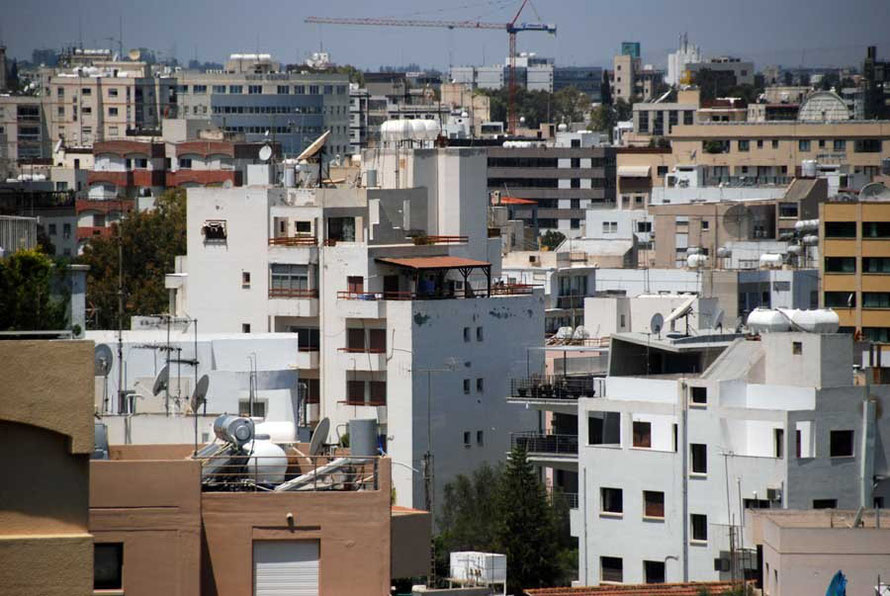
Banking Haircuts
Cyprus banks face strong headwinds to say the least. They hold of €22bn of Greek enterprise and individual debt. Additionally their large holdings of Greek state debt recently resulted in a €3bn haircut following the writedown of these debts.
Cyprus Popular Bank (CPB), the country's second largest, cannot at present raise sufficient capital to cover its share of this loss. (FT 05.06.12) and a €1.8bn share issue (equivalent to about 12 per cent of the island’s GDP) has been underwritten by the Cyprus government. CPB's largest shareholders are Dubai Holdings (17-18%) the Greek-based Marfin Investment Group that provided the bank's senior management team, and the Cypriot family-owned Lanitis group (4-5%). The Bank of Cyprus (not to be confused with the island's central bank) announced it needed €500m to make up its capital requirements (Cyprus Mail 28.6.2012). Small savers (17,000 of them) who invested in the PBC and BofC convertible bond issue above ,with a return of 7%, protested outside the BofC's HQ at the end of January 2013 as threats emerged that they may be sacrificed as part of the haircuts on the banks' creditors as part of the EU bailout of the banking sector (see FT Jan 31 2013).
In its usual pithy way the FT Lex Column summed up this situation saying that the Cyprus crisis is triply precarious: 'a government beholden to Moscow, an economy beholden to banking, and a banking sector beholden to Greece. If there is a Greek earthquake in the eurozone, Cyprus will provide the aftershock.'
Loss of power
On 11th July 2011 a massive explosion rocked the island. This was caused by a shipment of confiscated Iranian arms bound for Syria that had been left to fester for two and a half years at Evangelos Florakis naval base near the village of Mari, next to the island's main Vassiliko power station. The explosion, caused by high summer temperatures and a bushfire next to the base, killed 13 people and knocked out over half of the island's generating capacity and cost in the region of €2bn of damage against insurance cover of €600m. This led to a political crisis that resulted in the resignation of the island's Akel communist party government's Foreign Minister, Markos Kyprianou. (See FT 28/07/2011, Cyrpus Mail, 10/07/2012).
The arms and explosives - 98 containers in all- had been confiscated from a Cyprus-flagged ship sailing between Iran and Syria following a US tip-off that the ship was breaking international sanctions against Iran. The containers were stacked at Evangelos Florakis Naval base next to the power station. Apparently an internal investigation showed that UN inspections of the cache had been three times delayed by the Cypriot government (FT 03.10.11. and 10.07.2011)
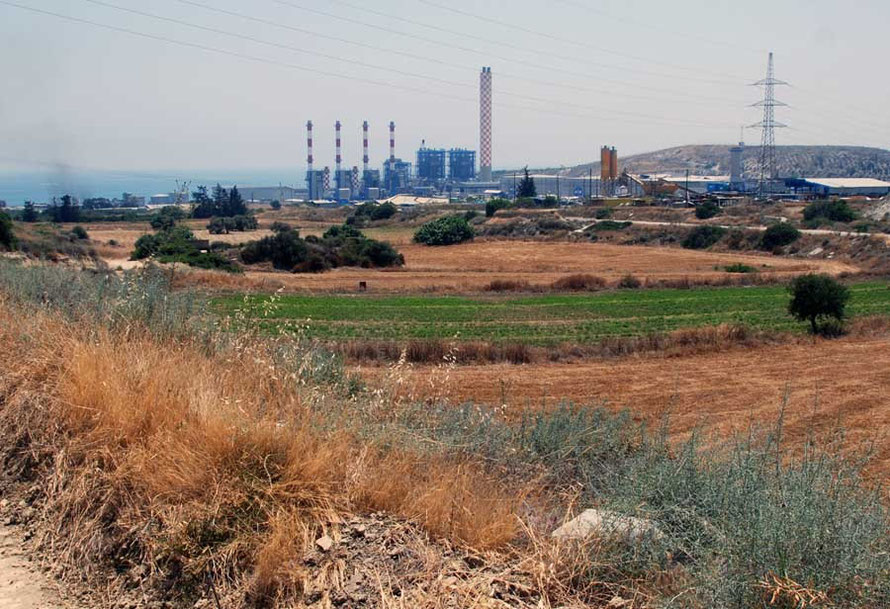
The loss of generating capacity has been in part made up by the massive use of generators supplied by Israel and Greece and a recent US contract to supply 95 generators to Moni power station. Electricity has also been controversially bought from the Turkish-Cypriot electricity company. Parliament recently refused to allow this practice to continue due to political sensitivities over the forthcoming Cyprus EU 6-month presidency starting from July 2012 (see Cyprus Mail June 16, 2012).
Consumers are being charged a surcharge of 7% on their electricity bills to meet the cost of the generators. It is estimated Vassilikos power station will be back to full operational capacity by the 2013 peak summer season.

A cabinet-led non-binding enquiry into the incident by a cabinet-appointed lawyer, Polys Polyviou, concluded that the President, Demetris Christofias and his foreign and defence ministers were responsible for the blast. The ministers resigned but the President refused to accept the findings of the enquiry. Since then former Foreign Minister, Marcos Kyprianou, former Defence Minister, Costa Papacostas, former National Guard deputy chief Savvas Argyrou, the fire service chief, Charalambos Charalambous and Andrea Loizides, the commander of the disaster response squad, have been charged with manslaughter and cause of death by negligence. The court proceedings are ongoing (Cyprus Mail, 12 July 2012).
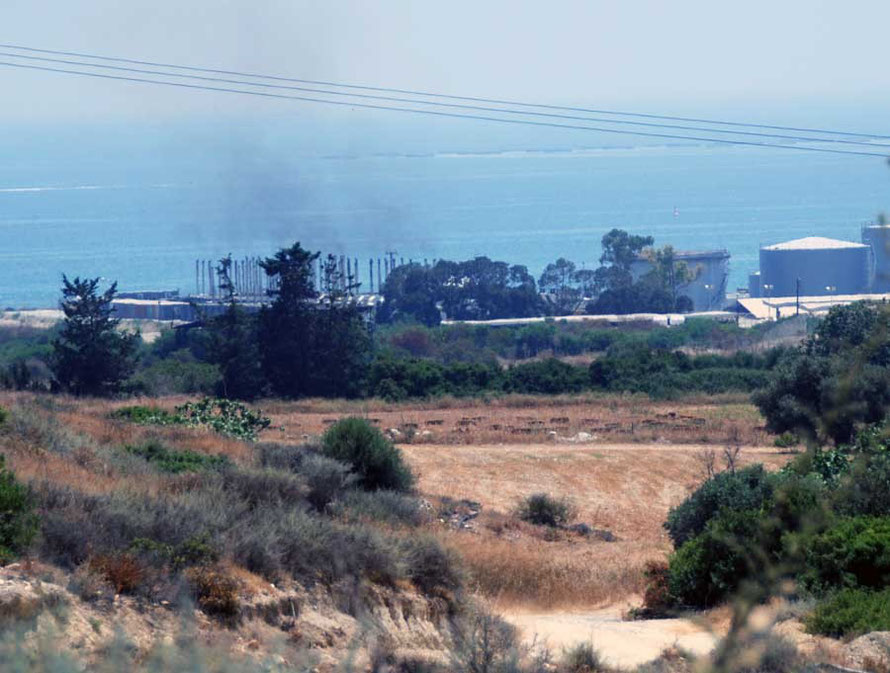
Life's a gas (field)
All is not doom and gloom. Greek Cypriot's have hitherto enjoyed a decent standard of living and Cyprus had a GDP per capita that was marginally below EU-27 average in 2010 and above that of Greece.
The discovery of potentially large gas deposits in Cypriot waters over the Levant Basin may help to offset some of these worries in the medium-term future but benefits from them will not arrive for a number of years.
In the immediate term, Cyprus will step into the limelight on July 1st 2012 when it takes over the rotating six-monthly presidency of the EU.





